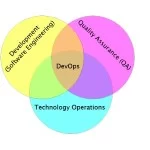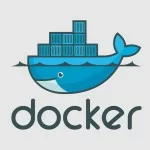DevOps vs Agile: Key Differences and Similarities in Terms Of Efficiency
DevOps and Agile are both methodologies that have become increasingly popular in the software development industry in recent years. Agile and DevOps are two methodologies that have different but complementary goals. Agile emphasizes flexibility and customer satisfaction in the development process, while DevOps focuses on improving collaboration and communication between development and operations teams to streamline the entire software development and deployment lifecycle.
1. DevOps vs Agile
Agile and DevOps are two methodologies that have distinct differences, despite sharing some similarities.
Agile is a software development methodology that emphasizes flexibility, collaboration, and customer satisfaction. It focuses on iterative and incremental development with frequent testing and feedback loops throughout the development process. Agile teams work in short sprints, typically two to four weeks, and prioritize delivering working software quickly over comprehensive documentation.
DevOps, on the other hand, is a set of practices that aims to improve collaboration and communication between development and operations teams. The goal of DevOps is to automate and streamline the entire software development and deployment process, from code creation to production release. DevOps teams work in a continuous delivery model, with the aim of releasing software updates as frequently and reliably as possible.
While Agile focuses on the development process, DevOps takes a broader view of the entire software development and deployment lifecycle. Agile is primarily focused on the development team and their interactions with customers, while DevOps is more focused on collaboration between development and operations teams.
Agile and DevOps also differ in their approach to change management. Agile embraces change, with the understanding that customer needs and requirements can evolve over time. DevOps, however, takes a more measured approach to change management, emphasizing the need for rigorous testing and risk management before making changes to production systems.
In summary, Agile and DevOps are two methodologies with different but complementary goals. Agile is primarily focused on the development process and customer satisfaction, while DevOps aims to improve collaboration and streamline the entire software development and deployment lifecycle.
2. What are the key differences between Agile and DevOps?
Agile and DevOps are two methodologies that have distinct differences. Here are some of the key differences between Agile and DevOps:
- Focus: Agile focuses on the development process and customer satisfaction, while DevOps focuses on collaboration between development and operations teams to streamline the entire software development and deployment lifecycle.
- Goals: The primary goal of Agile is to deliver working software quickly and adapt to changing requirements, while the primary goal of DevOps is to automate and streamline the entire software development and deployment process, from code creation to production release.
- Timeframe: Agile teams work in short sprints, typically two to four weeks, while DevOps teams work in a continuous delivery model, with the aim of releasing software updates as frequently and reliably as possible.
- Change Management: Agile embraces change, with the understanding that customer needs and requirements can evolve over time. DevOps, however, takes a more measured approach to change management, emphasizing the need for rigorous testing and risk management before making changes to production systems.
- Culture: Agile emphasizes collaboration, self-organizing teams, and continuous improvement. DevOps, on the other hand, emphasizes collaboration between development and operations teams, with a focus on automation and continuous delivery.
- Scope: Agile is primarily focused on the development team and their interactions with customers, while DevOps takes a broader view of the entire software development and deployment lifecycle.
- Tools: While both Agile and DevOps make use of various tools, the specific tools and technologies used may differ. Agile teams may use tools for project management, testing, and collaboration, while DevOps teams may use tools for automation, continuous integration/continuous deployment (CI/CD), and monitoring.
These are just a few of the key differences between Agile and DevOps. While both methodologies aim to improve efficiency and collaboration in software development, the choice between them depends on the specific needs and goals of the organization.
3. Which methodology is more suitable for managing complex software development projects?
Both Agile and DevOps can be suitable for managing complex software development projects, but the choice between them depends on the specific needs and goals of the project.
Agile is often favored for managing complex software development projects because of its iterative and incremental approach, which allows teams to prioritize and deliver working software in short sprints. This approach can help teams to manage complexity by breaking down large projects into smaller, more manageable pieces. The frequent feedback loops from customers and stakeholders can also help teams to adapt to changing requirements and priorities, which is essential for managing complexity.
DevOps, on the other hand, can also be effective for managing complex software development projects because of its focus on automation, collaboration, and continuous delivery. By automating many of the manual processes involved in software development and deployment, DevOps can help teams to streamline and standardize the development process, reducing the risk of errors and delays. The collaboration between development and operations teams in DevOps can also help to reduce silos and promote better communication, which is important for managing complexity in large projects.
Ultimately, the choice between Agile and DevOps for managing complex software development projects depends on your specific needs and goals. If the project involves a high degree of uncertainty or frequent changes to requirements, Agile may be more suitable. If the project involves a high degree of complexity and a need for reliable and frequent software releases, DevOps may be more suitable. It’s important to evaluate the benefits and drawbacks of each approach and consider how they align with the organization’s goals and values.
4. Devops or Agile In Terms of Efficiency
Both Agile and DevOps can lead to greater efficiency in software development, but the choice between them depends on the specific needs and goals of the organization.
Agile can be more efficient in situations where the primary focus is on delivering value to customers quickly and adapting to changing requirements. The iterative and incremental approach of Agile allows teams to prioritize and deliver working software in short sprints, with frequent feedback loops from customers and stakeholders. This can help teams avoid wasting time and resources on features that may not be valuable to the customer.
DevOps, on the other hand, can be more efficient in situations where the primary goal is to automate and streamline the entire software development and deployment process. The continuous delivery model of DevOps allows teams to release software updates frequently and reliably, without manual intervention or delays. This can help teams reduce the time and effort required for testing, deployment, and maintenance.
For some organizations, a combination of both methodologies may be the best approach to achieve greater efficiency in software development.
5. Conclusion
In conclusion, Agile and DevOps are two popular methodologies for software development and deployment, each with its own distinct characteristics and benefits. Agile focuses on iterative development and customer satisfaction, while DevOps emphasizes collaboration and automation to streamline the entire software development and deployment process.
Both methodologies can be effective for managing complex software development projects, but the choice between them depends on the specific needs and goals of the organization. Agile may be more suitable for projects with high uncertainty or frequent changes to requirements, while DevOps may be more suitable for projects with a high degree of complexity and a need for reliable and frequent software releases.
Ultimately, the best approach to software development and deployment is the one that aligns with the organization’s goals and values, and that is adaptable to the changing needs of the business and its customers.








